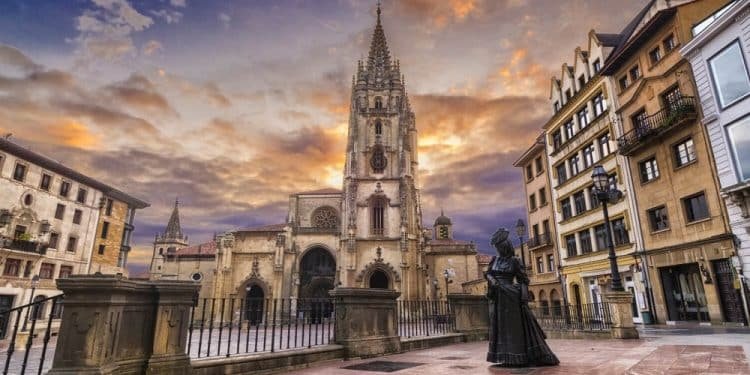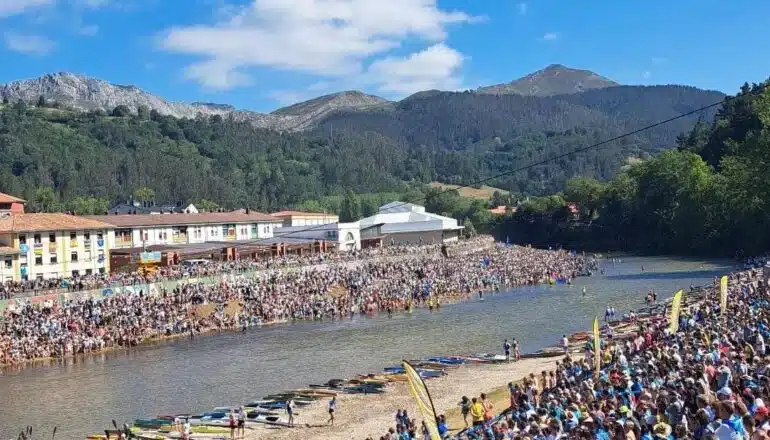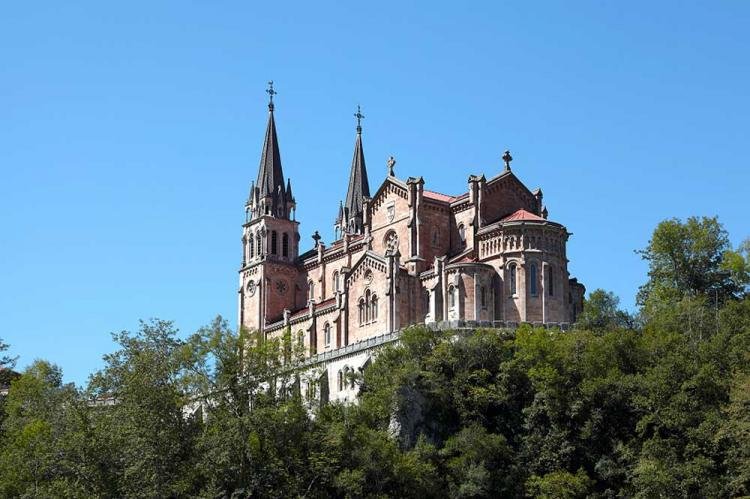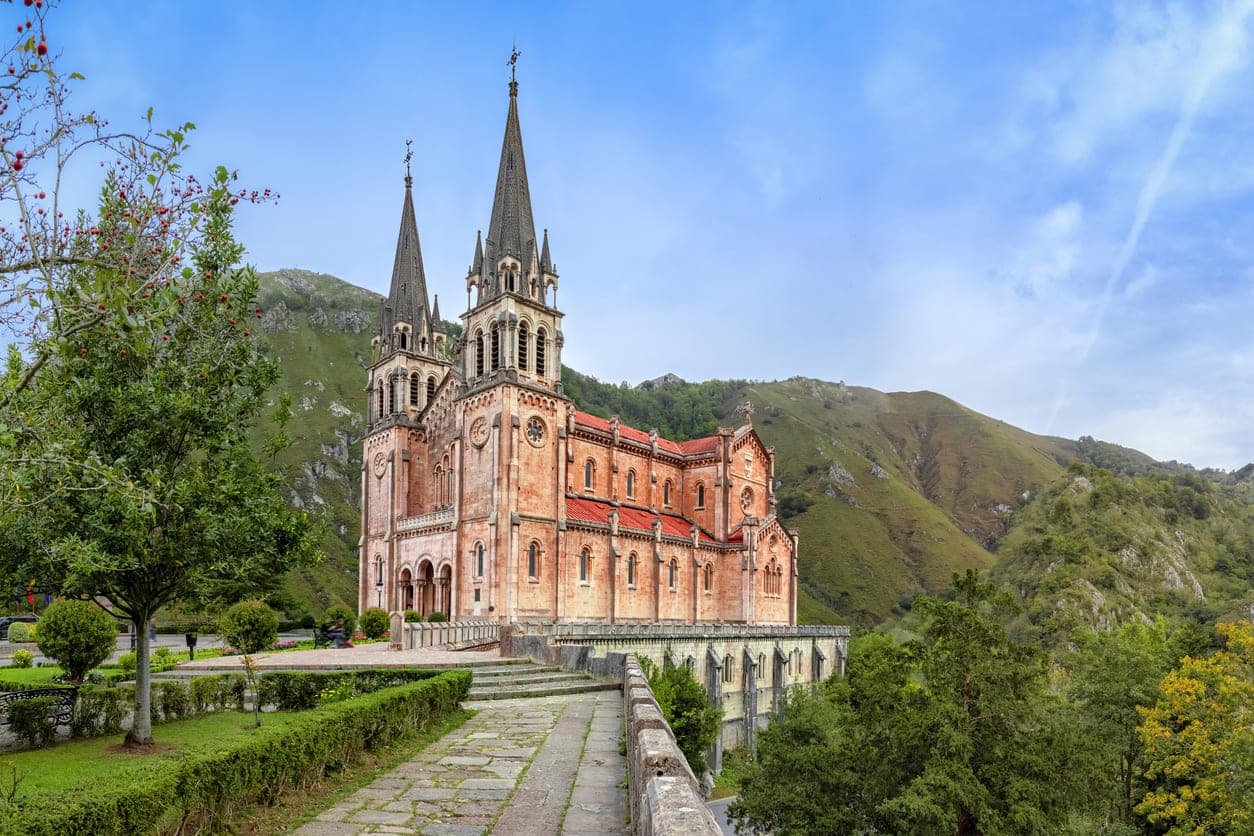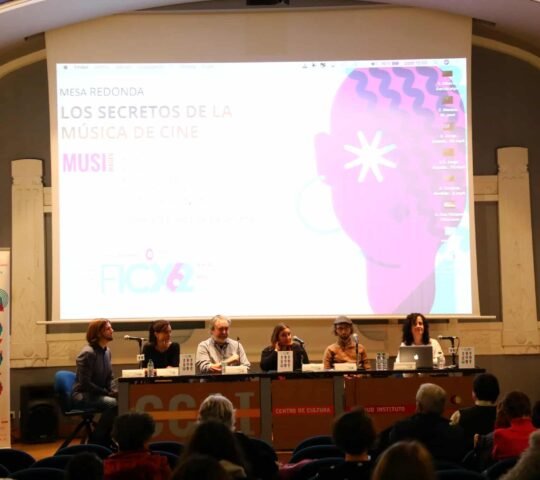Day of Asturias Spain 2025
Background & History
The Day of Asturias (Día de Asturias) is celebrated annually on September 8th, coinciding with the feast of Our Lady of Covadonga, the patron saint of Asturias. This day marks the victory of Christian forces in the Battle of Covadonga around 722 CE, a pivotal event initiating the Reconquista against Moorish rule in the Iberian Peninsula. The holiday was officially declared on June 28, 1984, to honor the region’s rich history and cultural identity. Asturias, with its deep Celtic and Christian roots, celebrates its unique traditions, language, and customs on this day. The Virgin of Covadonga statue, housed in a cave near the village of Covadonga, and the Victory Cross symbol are central icons of the celebration.
Event Highlights
- Religious services and pilgrimages at the Basilica de Santa María la Real de Covadonga and the Cathedral of San Salvador in Oviedo
- Traditional Asturian music featuring gaitas (bagpipes) and folk dances in regional costumes
- Parades of floats and folk groups culminating in large joint performances
- Local sports competitions and communal meals featuring regional dishes
- Tastings of Asturian specialties like fabada asturiana (bean stew), cachopo, and the famous cider poured in the escanciado style
Date & Duration
Dates: September 8, 2025
Duration: 1 day (official holiday)
Venue / Location
Main region: Asturias, Spain
Key location: C. Marruecos, 307, 28806 Alcalá de Henares, Madrid, Spain
Enjoy Your Event Stress-Free with Euro Travelo
Planning a trip to attend a festival, concert, or business event in Europe can be overwhelming—tickets, travel, accommodation, and local logistics all take time and effort. Euro Travelo makes it simple by providing everything you need through one trusted company. You save time, avoid stress, and enjoy a seamless experience from start to finish.
Why Choose Euro Travelo:
- Secure and easy ticket booking for concerts, festivals, theaters, and business events.
- Complete travel planning including flights, trains, and local transportation.
- Accommodation arrangements near event venues, tailored to your needs.
- Convenient local transfers, from airport pickups to private shuttles.
- On-site concierge support to help you navigate venues and schedules.
- Custom itineraries and experience packages combining multiple events, tours, and activities.
- Secure payment process, making it safe and convenient to book all services online.
- Flexibility: even if you need only one service, we can assist individually.
Contact Information
Phone: +34 913 43 39 04
Email: rrssturismo@tourspain.es
Website: spain.info
Ticket Information
Most events, including parades, concerts, and cultural exhibitions, are free to attend. Special events or concerts requiring tickets are announced locally, with prices varying by organizer. No general ticket is needed for public celebrations.
Cultural Experience
Visitors can experience Asturias’ vibrant traditions through its music, dance, and costumes. The day features traditional Asturian bagpipes, folk dance groups in authentic attire, and the display of regional symbols like the Asturian flag and the Victory Cross. Religious devotion plays a significant role, with many attending solemn Masses honoring Our Lady of Covadonga. The communal spirit is strong, with street parties, fairs, and shared meals.
Food & Drinks
Must-try specialties include fabada asturiana (hearty bean stew), cachopo (breaded veal with cheese and ham), fresh seafood, and sidra (Asturian cider) traditionally poured with a high pour to aerate the drink (escanciado).
Family & Accessibility
The Day of Asturias celebrations are family-friendly, with activities suitable for all ages, including parades and outdoor festivities. Accessibility varies by venue; major sites like the Basilica and Cathedral have accommodations for visitors with mobility needs, but some rural or historic locations may have limited access.
Getting There
Asturias is accessible via Asturias Airport (OVD), with connections to major Spanish cities. Public transport includes regional trains and buses serving key cities like Oviedo, Gijón, and Covadonga. Parking is available near major venues, though traffic disruptions may occur due to event activities.
Maps
Contact
Video
FAQ's
Is the Day of Asturias a public holiday throughout Spain?
No, it is a public holiday only in the autonomous community of Asturias and some nearby regions such as Extremadura. Other parts of Spain do not observe this holiday.
Are there any tickets required to attend the celebrations?
Most celebrations, including parades and public concerts, are free to attend. Special events or concerts may require tickets, which are announced locally.
What is the significance of Our Lady of Covadonga?
Our Lady of Covadonga is the patron saint of Asturias. The statue is believed to have helped Christian forces win the Battle of Covadonga, a turning point in Spanish history.
What traditional foods should I try during the Day of Asturias?
Try fabada asturiana, cachopo, fresh seafood, and the famous Asturian cider poured in the traditional escanciado style.
Are the events family-friendly and accessible?
Yes, the festivities are suitable for families. Accessibility varies by site, but major venues offer accommodations for visitors with mobility needs.

